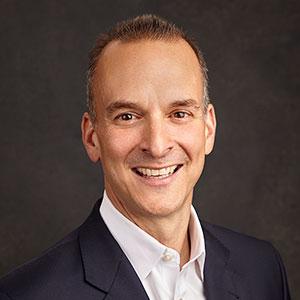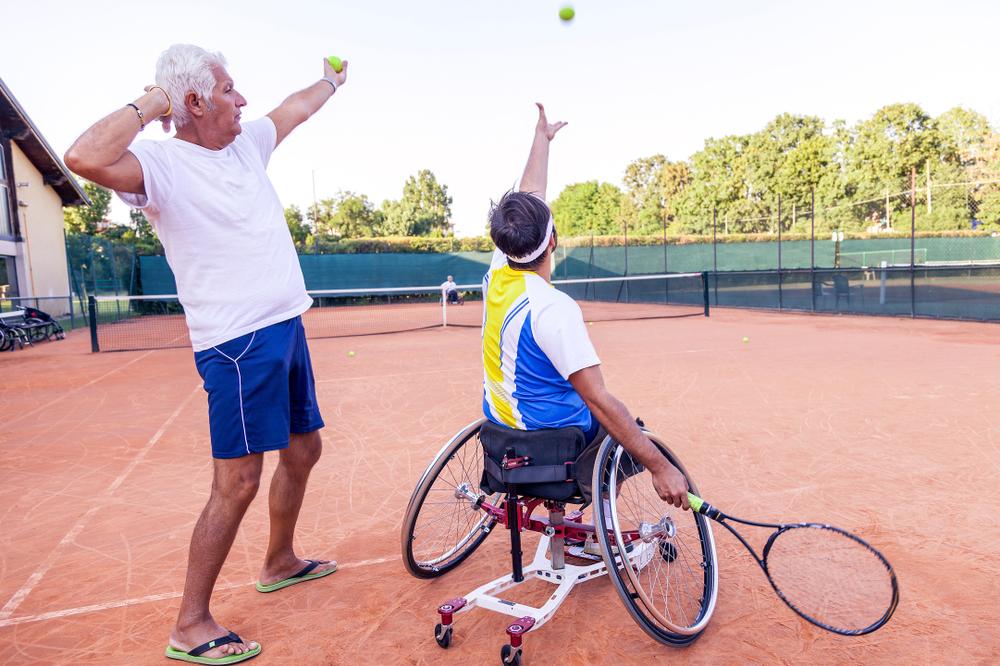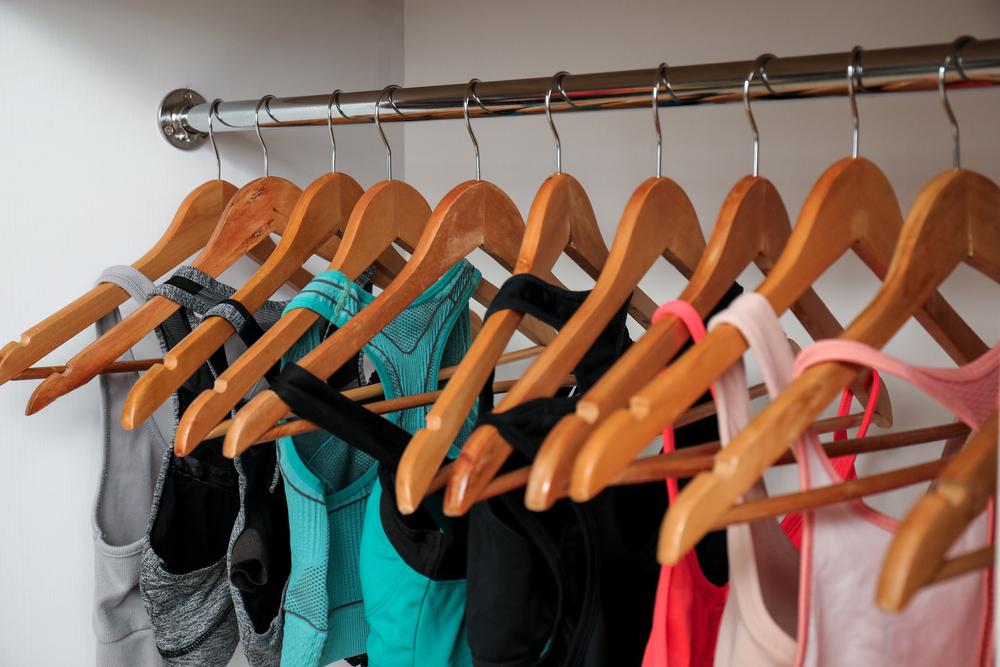Have you heard of the Enhanced Games? If so, the narrative around paying athletes and supporting career longevity may have sounded reasonable, but there’s far more to consider when it comes to understanding the impact of this proposed spectacle.
Here, the U.S. Anti-Doping Agency’s Dr. Matt Fedoruk, Chief Science Officer, and Olympian Allison Wagner, Athlete and International Relations Director, share their views on the Enhanced Games and how it can impact sport integrity, athlete wellness, and youth sport.
What are the Enhanced Games?
Simply explained, the Enhanced Games is a planned international sports event that may take place in 2025 where athletes are encouraged to enhance themselves and their performances by using performance-enhancing substances (PEDs) and methods. The idea was conceived by Australian businessman Aron D’Souza and has since garnered widespread media attention, as well the support of some and the condemnation of many.
Why would someone support the Enhanced Games? D’Souza claims that the Enhanced Games will offer athletes financial incentives that they don’t receive through the current Olympic and Paralympic system. And with the help of PEDs, D’Souza argues that athletes will be able to feel better for longer and extend their careers.
 Critics point out that the concept is not only legally questionable, but actually very dangerous to athletes’ health. Critics also note that the Enhanced Games sets a terrible example for young athletes around the world who will witness the glorification of a doping arms race rather than sport based on integrity, fairness, and determination.
Critics point out that the concept is not only legally questionable, but actually very dangerous to athletes’ health. Critics also note that the Enhanced Games sets a terrible example for young athletes around the world who will witness the glorification of a doping arms race rather than sport based on integrity, fairness, and determination.
Travis Tygart, the Chief Executive Officer of USADA, has commented, “While those behind the Enhanced Games might be looking to make a quick buck, that profit would come at the expense of kids across the world thinking they need to dope to chase their dreams. We desperately wish this investment was being made in the athletes who are currently training and competing the real and safe way. They are the role models this world so desperately needs and they are the ones who deserve our support – not some dangerous clown show that puts profit over principle.”
Athlete Health
First and foremost, much of what the Enhanced Games are championing is potentially dangerous in both the short and long term. While they claim that they will have medical staff on site to ensure the safety of the athletes before and during the competition, Fedoruk points out that many of the negative side effects and health outcomes from using banned substances can come during use in practice or even years later. Further, the synergistic negative health effects of taking multiple prohibited substances at once are unknown. “These things aren’t just banned because they’re effective at making athletes stronger or faster,” he explains. “Many are banned because they’ve been proven to be dangerous for athletes, with some harmful side effects being potentially irreversible.”
And while the potential for compensation might make the risk seem worthwhile, it’s critical to note that there is no actual prize purse listed or plan for how the compensation will work. As Wagner explains, it’s currently empty promises. And beyond that, participation in the Enhanced Games could cost an athlete sponsorships, speaking engagements, and the ability to compete in other events. Any short-term monetary gain would be outweighed by the health risks and career impacts.
“This event is being done purely for the entertainment and shock value, with no bearing on the long-term health of the athlete,” says Fedoruk. “If you’re an athlete looking for a payout, the promises may be appealing, but it’s forcing you to put your body and health—and probably your longevity–at risk.”
Integrity and Fairness
 Integrity is the cornerstone for sport and for competition. “Allowing doping is a very dangerous and disturbing proposition,” says Wagner. “For me and for so many athletes, sport has been about learning and incorporating values such as integrity and fair play, and these Enhanced Games make a mockery of that. Olympic and Paralympic values are so important to athletes. We believe in the pursuit of excellence with integrity. And it’s not just about being great athletes: Many of these athletes who compete at the Olympics and Paralympics are role models in their community and that’s because they achieved excellence in a way that was honorable.”
Integrity is the cornerstone for sport and for competition. “Allowing doping is a very dangerous and disturbing proposition,” says Wagner. “For me and for so many athletes, sport has been about learning and incorporating values such as integrity and fair play, and these Enhanced Games make a mockery of that. Olympic and Paralympic values are so important to athletes. We believe in the pursuit of excellence with integrity. And it’s not just about being great athletes: Many of these athletes who compete at the Olympics and Paralympics are role models in their community and that’s because they achieved excellence in a way that was honorable.”
“The Enhanced Games diminishes sport to pure entertainment,” explains Fedoruk. “And that seems problematic when you think about the value sport brings to society and individuals. Sport is a journey. It’s something that’s supposed to be healthy and meaningful. There are rules put in place in order to try to make it fair.”
Even from a legal standpoint, there are questions around the Enhanced Games. There is significant crossover between PEDs that are actually illegal in most countries with drugs that are banned by the World Anti-Doping Agency (WADA). And while D’Souza has talked extensively about wanting to see world records broken, it’s important to understand that if any world records do fall during these events (although doping doesn’t guarantee record-breaking performances) the new record wouldn’t stand. Ratification of world records are typically subject to WADA global anti-doping standards, which means that any ‘heaviest lift’ or ‘fastest marathon time’ wouldn’t be entered into the official record books.
Youth Athletes
In addition to Tygart’s point that the Enhanced Games could lead to kids across the world thinking they need to dope to chase their dreams, Fedoruk also notes the mental health risks for young athletes watching this kind of event. “We already know that the pressure to have your body look a certain way is immense for young athletes, and it can be very damaging,” he says. “With the Enhanced Games promoting the use of things like steroids, I worry that young athletes who watch those athletes will internalize some really unhealthy messages.”
“And just because someone takes EPO or a steroid doesn’t put them at the same level as an Olympic athlete,” adds Fedoruk. “PEDs are not a short cut. You have to use these substances for a certain period of time in order for them to have an effect, and the longer you use them in the higher doses, the more chances that you’re going to suffer unwanted side effects, which ultimately impair your performance rather than improve it.”
_________________________
Takeaway
It’s important to understand the risks associated with a concept like the Enhanced Games, a sporting event where doping would be actively encouraged. Mental and physical health effects, integrity concerns, and the devaluing of sport are among the top issues. Finally, there is little evidence that the Enhanced Games will live up to the financial incentives that they’ve claimed, and participation will cause athletes to be ineligible for other events and compensation opportunities.



